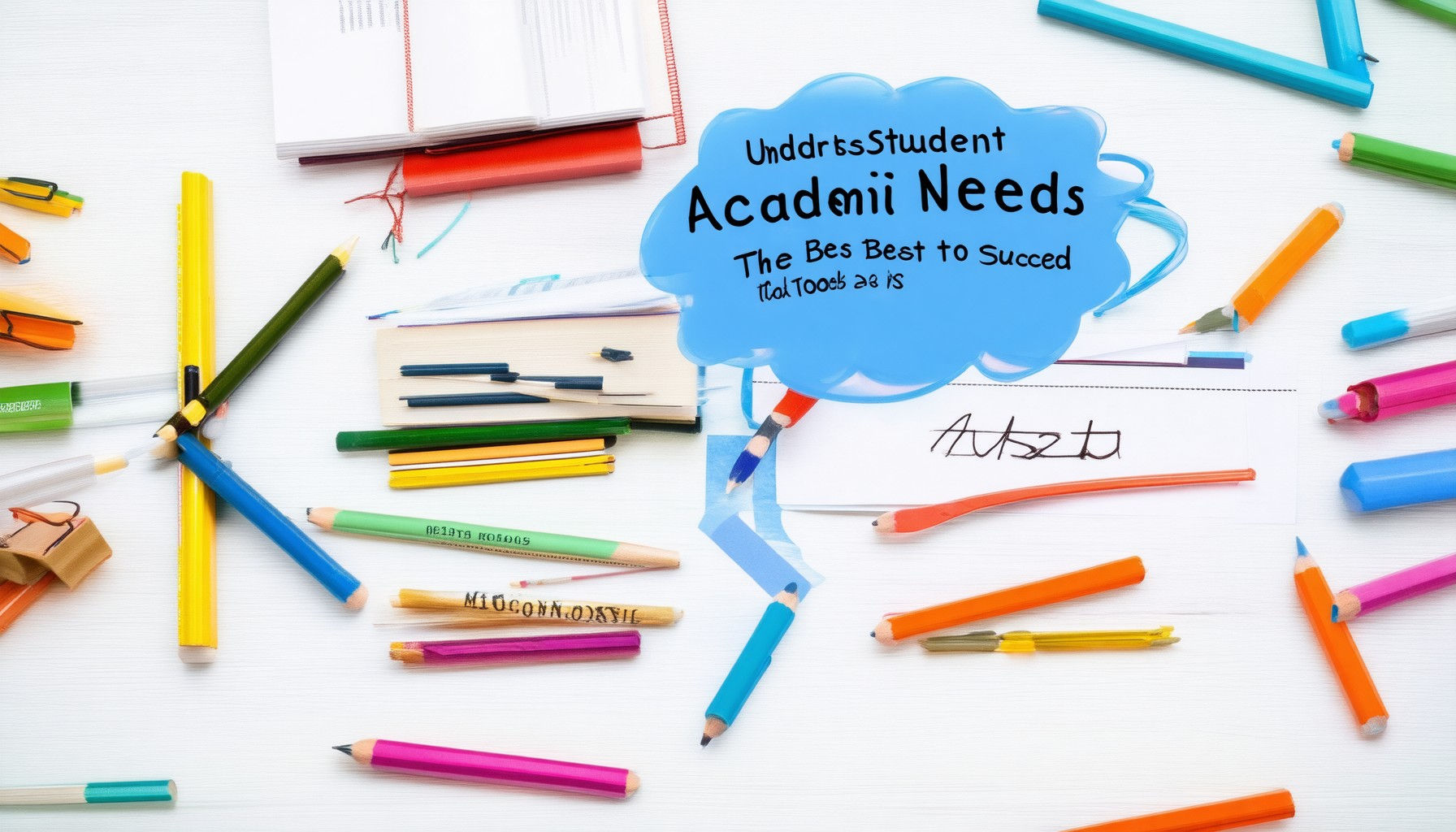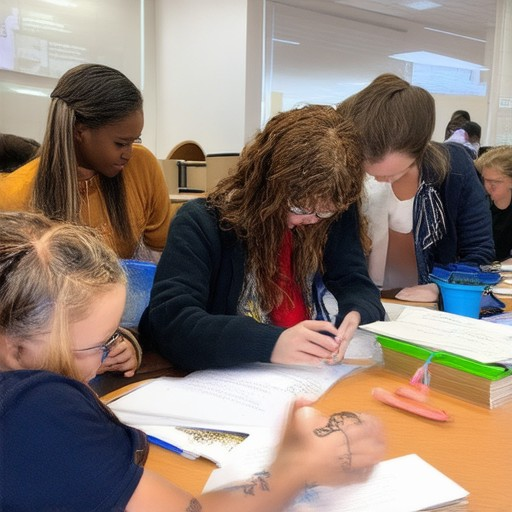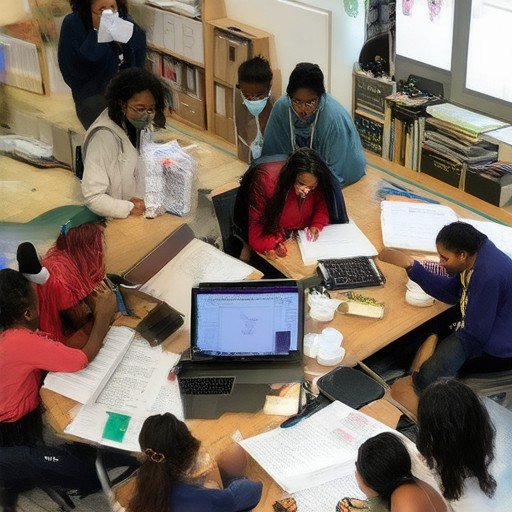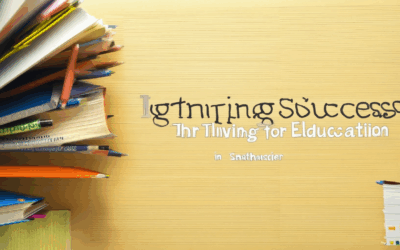Understanding the academic landscape is crucial for students aiming to excel in their studies. Whether it’s conducting effective research, seeking support, or leveraging cutting-edge tools, students often encounter a variety of challenges that can hinder their progress. This article delves into the essential tools and strategies designed to address these challenges, providing insights into how students can navigate their academic journey with confidence and efficiency. From traditional research tools to modern digital solutions, we explore the best resources available to meet diverse academic needs, ensuring students are equipped with everything necessary to thrive in their educational pursuits. By examining the key areas where students may require assistance, this guide offers a comprehensive overview of the tools and techniques that can help bridge gaps and foster long-term academic success.
Academic Research Tools
Academic research tools are essential for organizing, managing, and conducting research efficiently. These tools help researchers collect, analyze, and present data effectively. Below is a detailed overview of some of the most commonly used academic research tools:
Categories of Academic Research Tools
- Reference Management Software: Tools that help manage citations, bibliographies, and references.
- Data Analysis Tools: Software for collecting, processing, and analyzing research data.
- Literature Review Tools: Platforms for searching and organizing academic papers and articles.
- Survey Creation Tools: Tools for designing and distributing surveys to gather data.
- Collaboration Tools: Platforms for sharing research materials and collaborating with team members.
- Data Visualization Tools: Tools for presenting research findings in an accessible format.
Best Academic Research Tools
- Reference Management: Zotero, Mendeley, and EndNote are popular tools for managing citations and bibliography creation. Zotero offers automatic citation formatting for many academic styles, while Mendeley provides cloud-based storage for your research documents.
- Data Analysis: Excel and Google Sheets are widely used for organizing and analyzing data. For more advanced analytics, tools like R, Python, and SPSS can be utilized for statistical analysis and data modeling.
- Literature Review: Google Scholar, JSTOR, and ResearchGate are powerful platforms for finding peer-reviewed articles and managing your bibliography. These tools also offer citation tracking features.
- Survey Creation: Qualtrics, SurveyMonkey, and Google Forms are leading tools for creating and distributing surveys. These platforms offer features like automated reminders and data collection in real-time.
- Collaboration: GitHub and GitLab are excellent for version control and collaborative research projects. These tools allow teams to track changes, manage branches, and share code securely.
- Data Visualization: Tableau and Power BI are industry-leading tools for creating interactive and visually appealing dashboards. They are particularly useful for presenting complex datasets in a user-friendly manner.
Choosing the Right Tool
When selecting academic research tools, consider factors such as your specific research needs, budget, and level of technical expertise. Many tools offer free versions or trials, allowing you to evaluate their suitability for your project before committing to a purchase.
How to Get Started
1. Identify the primary functions you need in your research project. 2. Explore free trials or demos of the tools that interest you. 3. Read user reviews and forums to get insights into their usability and effectiveness. 4. Start with a tool that aligns with your workflow and gradually incorporate more advanced features as needed.
By leveraging these academic research tools, you can streamline your workflow, enhance the quality of your research, and make informed decisions based on robust data analysis.
Examples of Academic Support for Students
Academic support for students encompasses a variety of resources and programs designed to enhance learning, foster academic success, and provide additional assistance. Here are some examples:
- Enroll Maven offers a comprehensive platform with tips, advice, and insights to help students succeed academically. Their resources cover effective learning strategies, college preparation, and enrollment guidance, making them a valuable tool for students at all levels. Visit Enroll Maven
- Supplemental Courses : Many schools and institutions provide supplementary courses to help students master challenging subjects or prepare for standardized tests. These courses often include personalized instruction and practice exams.
- Tutoring and Mentoring Programs : Access to qualified tutors and mentors can significantly improve academic performance. These programs are often available through schools, local organizations, or online platforms.
- College and Career Services : Guidance counselors and career services provide students with resources to plan their academic futures, including information on colleges, scholarships, and career paths.
- Study Groups and Peer Learning : Collaborating with peers in study groups can enhance understanding and retention. Many academic support programs encourage forming these groups to facilitate collaborative learning.
- Academic Coaching : Coaches specialize in helping students develop study habits, time management skills, and academic strategies tailored to their individual needs.
These examples demonstrate the diverse approaches schools, organizations, and online platforms take to support student academic success. Whether through structured programs or community-driven initiatives, the goal is to provide students with the tools and resources needed to thrive academically.
Best Online Student Tools
We’ve compiled a list of essential online tools tailored for students to enhance their learning experience:
- Microsoft Office Lens : Transform scanned documents into editable files with this powerful scanning app. Perfect for organizing notes and staying ahead in class. Learn More
- MyStudyLife : A comprehensive study planner that helps manage assignments, track progress, and stay motivated. Organize your schedule effectively. Visit Website
- TED Talks : Access inspiring lectures and discussions on various topics. Great for sparking ideas and expanding your knowledge base. Explore Talks
- Todoist : Stay organized with this task management tool. Create to-do lists, set deadlines, and track your productivity effortlessly. Get Started
- Recorder Mobile App by Google : Record and organize audio notes during lectures. Review them later at your convenience. Download App
These tools are designed to streamline your academic journey, making studying more efficient and enjoyable. Whether it’s organizing notes, managing tasks, or exploring new ideas, there’s something here for every student.
Top 5 Needs for Students
Students have diverse needs that go beyond academics to ensure their overall well-being and success. Here are the top five essential needs:
- Safety and Security : A secure environment whether on campus or at home ensures students can focus on their studies without fear. Proper lighting, emergency exits, and access to help are crucial.
- Nutrition and Food Access : Adequate meals and snacks are vital for energy and concentration. Access to affordable, healthy food options on campus or nearby communities is essential.
- Housing and Living Conditions : Safe and comfortable living spaces, whether in dormitories, apartments, or family homes, provide stability and reduce stress.
- Financial Health : Resources for managing expenses, scholarships, grants, and financial aid programs help students navigate costs associated with education.
- Physical, Psychological, and Spiritual Wellness : Access to healthcare, counseling services, and opportunities for relaxation or spiritual growth contribute to overall well-being.
Meeting these needs supports academic success and personal development, ensuring students can thrive in their educational journey.
Understanding the Academic Needs of Students
Academic needs encompass a broad spectrum of requirements that students must fulfill to succeed in their educational journey. These needs vary depending on the level of study, personal circumstances, and institutional expectations. Below is a detailed breakdown of the primary academic needs of students:
- Access to Resources: Students require access to textbooks, libraries, online databases, and other learning materials to complete their assignments and research.
- Support Systems: Access to tutoring services, mentorship programs, and peer support groups can significantly enhance student success.
- Individualized Attention: Every student has unique learning styles and challenges. Personalized instruction and tailored learning plans are essential for academic growth.
- Engagement Opportunities: Interactive classrooms, extracurricular activities, and hands-on projects help maintain student interest and motivation.
- Connection to Future Goals: Students need clarity about their career paths and opportunities for internships, job placements, and further education.
To address these needs effectively, educational institutions should implement comprehensive support systems that cater to diverse student populations. By recognizing and fulfilling these academic needs, students can achieve their full potential and thrive in their educational environments.
For more insights into supporting student success, explore our resources on effective learning strategies and college preparation tips .
What Are the 5 People’s Basic Needs?
The basic needs of people are essential for survival and overall well-being. These needs vary slightly depending on individual circumstances but generally include:
- Food : Access to nutritious meals is crucial for energy and health. Food insecurity can significantly impact quality of life and productivity.
- Water : Clean and safe drinking water is essential for hydration and preventing diseases. Access to water is a fundamental human right.
- Shelter : Safe and stable housing provides protection from harsh environments. Shelter is often the most immediate basic need for many individuals.
- Clothing : Adequate clothing protects against weather conditions and maintains dignity. Basic essentials like coats, shoes, and uniforms are vital.
- Healthcare : Access to medical care ensures physical and mental health. Preventative care and treatment for illnesses are key components of well-being.
Meeting these basic needs is foundational to thriving in society. Ensuring access to food, water, shelter, clothing, and healthcare creates a stable foundation for personal and community development.









0 Comments